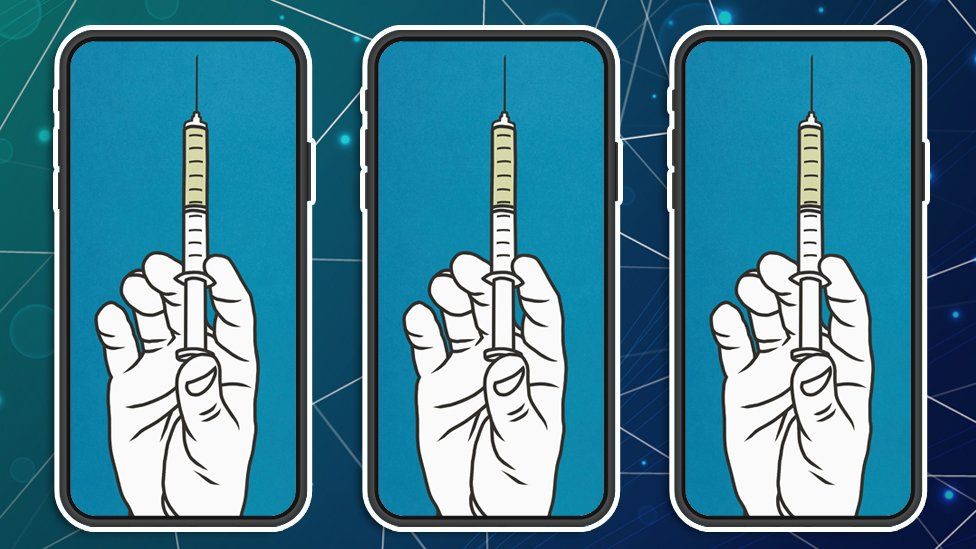RIO DE JANEIRO, BRAZIL – Immunization is advancing unstoppably in Chile and the United States, which have already vaccinated more than 60% of their citizens with at least one dose, progress that contrasts with the global situation in the Americas, where vaccines have so far only reached 3% of the population.
Thus, Chile, in only four months since the start of its massive immunization campaign, already has 63 % of its citizens vaccinated with at least one dose and 50.6 % with the complete immunization schedule, while the United States has 60.5 % (156 million) and 48.4 % (124 million) of its citizens immunized, respectively.

A gulf separates these figures from those of the region as a whole, where only 3% have been completely vaccinated, and where most countries depend on fluctuations in global stocks to receive vaccines, as the director of the Pan American Health Organization (PAHO), Carissa F. Etienne, lamented this week.
A gap that takes a bizarre turn with two very different situations: New York draws 5 million dollars in a “Vaccine and Scratch” lottery for those who get immunized and thus attracts the most skeptical. At the same time, Paraguay could not continue immunizing its population this week due to a lack of doses.
This in a week when there were more than 1.2 million new cases and some 31,000 deaths on the continent.
GETTING RID OF “EXCESSIVE” DEPENDENCE ON IMPORTS
One of the main problems for access to more vaccines is Latin America’s dependence on imports and stockpiles from other countries, which can turn off the tap in case of contingencies. Only 4% of the medical products used in Latin America for the response to covid were produced in the region, according to PAHO.
Its director said Wednesday that the figure is a “symptom” of “overdependence” and called for expanding regional production capacity for medical products, including vaccines.
“We must increase production along the entire value chain of vaccines, from the inputs that make them up to the vials and syringes that help us distribute them, without compromising quality,” she said.
Four countries stand out in this task: Mexico, Argentina, Brazil, and Cuba.
In Brazil, the Brazilian pharmaceutical company União Química produced the first batch of the Russian anti-virus vaccine Sputnik V to export it to other Latin American countries. Mexico is finalizing details to begin delivery of AstraZeneca vaccines packaged at the Liomont plant in the country’s center.
In Cuba, the name of its vaccine, “Soberana 02,” is an obvious declaration of intent. With the other proprietary preparation, the Abdala vaccine, about half a million people have been immunized in clinical trials of both formulas, which are in the third and final phase before authorization for their use.
The authorities expect to obtain it next June, once the results of the clinical trials are disclosed, and this would allow the start of the mass vaccination campaign with total sovereignty of the foreign market.
SPUTNIK V GAINS GROUND
Although it lost steam due to the delay in remittances, Russia gained lost ground this week with the approval by Ecuador of the Sputnik V vaccine and the approval by Nicaragua and Venezuela of its younger sister, the single-dose Sputnik Light, which still lacks the endorsement of independent scientific journals.
Bolivia, Venezuela, Paraguay, Mexico, Nicaragua, St. Vincent, and the Grenadines, Honduras, Guyana, Guatemala, Antigua and Barbuda, and Panama add to the list of other countries vaccinating with this Russian compound.
On the other hand, the Chinese pharmaceutical company CanSino knocked on Brazil’s door with a request to the Brazilian National Health Regulatory Agency (ANVISA) for the emergency use of its Convidecia vaccine, the second in the country coming from the Asian nation.
COVAX CONTINUES WITH DELAYS
Covax, the agency led by the World Health Organization (WHO), continues with delays around the world, with 65 million vaccines distributed, far from the 170 million planned for this date, according to Unicef. In America, some 12 million doses have been delivered while awaiting another 770,000 that “are on their way”, according to PAHO.
The countries with the lowest GDP per capita and which are most dependent on Covax are precisely those lagging: Nicaragua has vaccinated just 2.51% of its population with at least one dose, Guatemala 1.71%, similar to Honduras (1.10%), Paraguay (2.90%) and Venezuela (1.11%).
Haiti, the country with the lowest GDP per capita in the region, has not yet received any vaccines.

